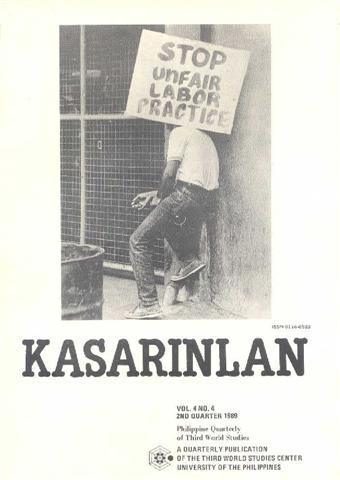Situating the Philippine Political Economy: Import-Substitution Industrialization in Comparative Perspective
Abstract
The article attempts to show that there are critical differences in the political economy of import-substitution industrialization (ISI) in the Philippines and Brazil. First, one must contrast the decolonization process in the two countries. Second, Philippine industrialization came later, and lacked the depth of industrialization in Brazil. Moreover, there are variations in the role played by foreign capital. Third, the populism found in Brazil was absent in the Philippines, labor was a weaker force in Philippine society, and appeals to curd the power of the oligarchy and foreign firms were not prominent among Philippine government leaders who formulated ISI policies. Fourth, unlike in Brazil, Philippine state enterprises were curbed rather than promoted during the ISI period, and the military was a marginal force in the process of industrialization. Finally, agrarian interests remained far more powerful in the Philippines than their Brazilian counterparts and were even able to regain a dominant role in the 1960s. Although outside the scope of this study, one could also examine how the nature of the regime that followed the declaration of martial law in 1972, as well as the direction of economic change it pursued, varied substantially from that of the bureaucratic-authoritarian regime that came to power in Brazil in 1964. What difference do all these differences make? This analysis hopes to highlight important problems in drawing close parallels between the political economy of the Philippines and the political economies of the Latin American newly-industrialized countries. Correctly situating the Philippines is critical to our understanding of the Philippine political economy.
Published
2008-07-02
Issue
Section
Features
By submitting a manuscript, the authors agree that the exclusive rights to reproduce and distribute the article have been given to the Third World Studies Center.



